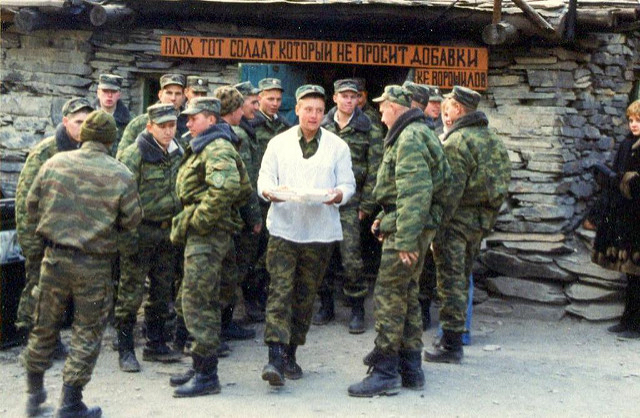The overwhelming influence of Russia has taken Europe at different epochs by surprise, startled the peoples of the West, and been submitted to as a fatality, or resisted only by convulsions.
But alongside the fascination exercised by Russia, there runs an ever-reviving scepticism, dogging her like a shadow, growing with her growth, mingling shrill notes of irony with the cries of agonising peoples, and mocking her very grandeur as a histrionic attitude taken up to dazzle and to cheat.
Other empires have met with similar doubts in their infancy; Russia has become a colossus without outliving them. She affords the only instance in history of an immense empire, the very existence of whose power, even after worldwide achievements, has never ceased to be treated like a matter of faith rather than like a matter of fact. From the outset of the eighteenth century to our days, no author, whether he intended to exalt or to check Russia, thought it possible to dispense with first proving her existence.
But whether we be spiritualists or materialists with respect to Russia–whether we consider her power as a palpable fact, or as the mere vision of the guilt-stricken consciences of the European peoples–the question remains the same: “How did this power, or this phantom of a power, contrive to assume such dimensions as to rouse on the one side the passionate assertion, and on the other the angry denial of its threatening the world with a rehearsal of Universal Monarchy?”
At the beginning of the eighteenth century, Russia was regarded as a mushroom creation extemporised by the genius of Peter the Great. Schloezer thought it a discovery to have found out that she possessed a past; and in modern times, writers, like Fallmerayer, unconsciously following in the track beaten by Russian historians, have deliberately asserted that the northern spectre which frightens the Europe of the nineteenth century already overshadowed the Europe of the ninth century. With them the policy of Russia begins with the first Ruriks, and has, with some interruptions indeed, been systematically continued to the present hour.

Ancient maps of Russia are unfolded before us, displaying even larger European dimensions than she can boast of now: her perpetual movement of aggrandizement from the ninth to the eleventh century is anxiously pointed out; we are shown Oleg launching 88,000 men against Byzantium, fixing his shield as a trophy on the gate of that capital, and dictating an ignominious treaty to the Lower Empire; Igor making it tributary; Sviataslaff glorying, “the Greeks supply me with gold, costly stuffs, rice, fruits and wine; Hungary furnishes cattle and horses; from Russia I draw honey, wax, furs, and men”; Vladimir conquering the Crimea and Livonia, extorting a daughter from the Greek Emperor, as Napoleon did from the German Emperor, blending the military sway of a northern conqueror with the theocratic despotism of the Porphyro geniti, and becoming at once the master of his subjects on earth, and their protector in heaven.
Yet, in spite of the plausible parallelism suggested by these reminiscences, the policy of the first Ruriks differs fundamentally from that of modern Russia. It was nothing more nor less than the policy of the German barbarians inundating Europe–the history of the modern nations beginning only after the deluge has passed away. The Gothic period of Russia in particular forms but a chapter of the Norman conquests.
As the empire of Charlemagne precedes the foundation of modern France, Germany, and Italy, so the empire of the Ruriks precedes the foundation of Poland, Lithuania, the Baltic Settlements, Turkey, and Muscovy itself. The rapid movement of aggrandizement was not the result of deep-laid schemes, but the natural offspring of the primitive organization of Norman conquest–vassalship without fiefs, or fiefs consisting only in tributes–the necessity of fresh conquests being kept alive by the uninterrupted influx of new Varangian adventurers, panting for glory and plunder.

The chiefs, becoming anxious for repose, were compelled by the Faithful Band to move on, and in Russian, as in French Normandy, there arrived the moment when the chiefs despatched on new predatory excursions their uncontrollable and insatiable companions-in-arms with the single view to get rid of them.
Warfare and organization of conquest on the part of the first Ruriks differ in no point from those of the Normans in the rest of Europe. If Slavonian tribes were subjected not only by the sword, but also by mutual convention, this singularity is due to the exceptional position of those tribes, placed between a northern and eastern invasion, and embracing the former as a protection from the latter.
The same magic charm which attracted other northern barbarians to the Rome of the West attracted the Varangians to the Rome of the East. The very migration of the Russian capital–Rurik fixing it at Novgorod, Oleg removing it to Kiev, and Sviataslaff attempting to establish it in Bulgaria–proves beyond doubt that the invader was only feeling his way, and considered Russia as a mere halting-place from which to wander on in search of an empire in the South.
If modern Russia covets the possession of Constantinople to establish her dominion over the world, the Ruriks were, on the contrary, forced by the resistance of Byzantium, under Zimiskes, definitively to establish their dominion in Russia.
Excerpted from the Secret Diplomatic History of the Eighteenth Century, by Karl Marx, courtesy of Project Gutenberg. Photographs byVladimir Varfolomeev. Published under a Creative Commons license.





